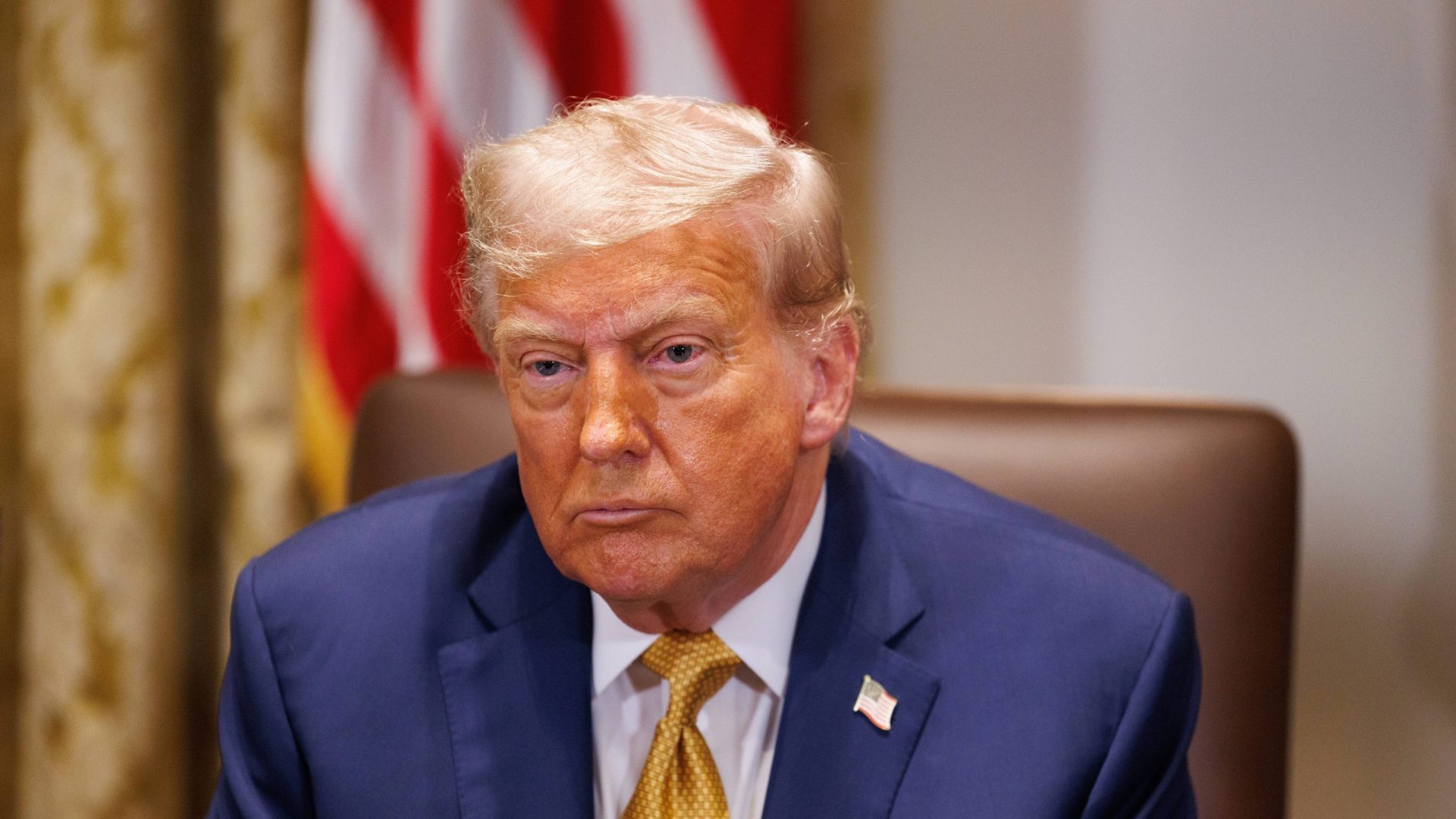
It seems like an intriguing idea: President Donald Trump has talked about the possibility of tariffs replacing income taxes. It’s certainly not a new thought. As noted by SmartAsset, it’s similar to early American money policy where tariffs were the primary revenue source for the federal government.
Check Out: Trump Wants To Replace Income Taxes With Tariffs: 2 Impacts on the Middle Class
Learn More: The New Retirement Problem Boomers Are Facing
While some economists and policymakers have questioned the viability of such a plan, if it were to happen, here’s who financial experts told GOBankingRates might benefit the most.
Also see how paychecks would look in each state if Trump dropped federal income tax.
Benefits for High-Income Earners
According to Anastasia Atamanchuk, CPA, a tax partner at Gursey Schneider, at first glance, replacing federal income taxes with tariffs may look like a straightforward shift from earners to consumers. With that, the winners and losers may seem clear.
“High-income individuals, who pay the lion’s share of income taxes, would benefit from eliminating those taxes,” Atamanchuk said. “In contrast, low-income earners, who spend nearly all of what they make — often on imported goods — would bear a disproportionate share of the new tax burden, much like what happens when a state replaces income taxes with higher sales taxes.”
Read Next: I Asked ChatGPT What Would Happen If Billionaires Paid Taxes at the Same Rate as the Middle Class
Benefits for Businesses
“The winners here include the rich and businesses that do business at home. They would be looking at a swap of wiping out progressive income taxes while taxing border adjustments,” said Dennis Shirshikov, head of growth and engineering at Growth Limit and an adjunct finance professor at the City University of New York.
In addition, according to Shirshikov, high net worth households, who save or invest a large fraction of their earnings and do not spend that money on imported consumer goods, could therefore find that their marginal tax falls to zero, whereas their private costs could be negligible.
Meanwhile, per Shirshikov, domestic producers in protected industries, steel, aluminum, furniture and even some agri-processors, would also have an easier time, as higher tariffs on imports would provide a barrier against low-cost foreign competition.
Economic Impacts
When you look beyond that first layer, according to Atamanchuk, the deeper and more uncertain impact lies in how much such a fundamental restructuring would ripple through the economy.
“Tariffs don’t just raise prices — they reshape supply chains, consumer demand and potentially global trade relations,” Atamanchuk said. “We’ve already seen how sensitive financial markets are to tariff announcements. Even before implementation, such policies can trigger stock sell-offs, disrupt imports and unsettle business planning.”
Editor’s note on political coverage: GOBankingRates is nonpartisan and strives to cover all aspects of the economy objectively and present balanced reports on politically focused finance stories. You can find more coverage of this topic on GOBankingRates.com.
More From GOBankingRates
- 7 McDonald's Toys Worth Way More Today
- 4 Companies as Much as Tripling Prices Due To Tariffs
- These Cars May Seem Expensive, but They Rarely Need Repairs
- 6 Big Shakeups Coming to Social Security in 2025
This article originally appeared on GOBankingRates.com: Who Would Benefit the Most From Trump’s Proposed Income Tax Plan?







